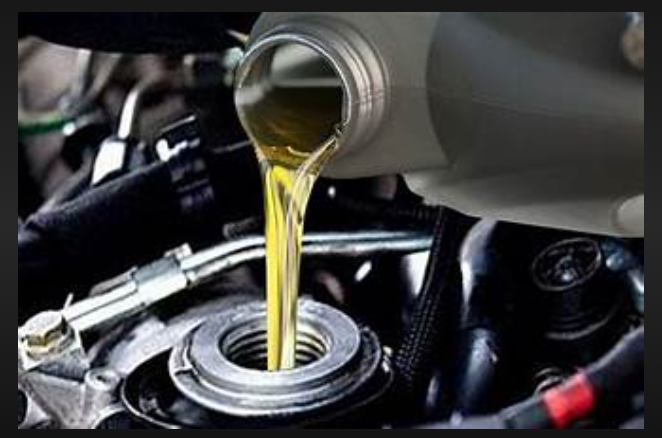Distinguishing Between Brake Oil and Engine Oil Properties
Viscosity plays a crucial role in differentiating between brake oil and engine oil properties. Brake oil, also known as brake fluid, typically has a lower viscosity compared to engine oil. This characteristic is essential for its intended function in hydraulic brake systems. The lower viscosity of brake oil allows it to flow easily through the brake lines, ensuring rapid transmission of hydraulic pressure when you apply the brakes. On the other hand, engine oil is designed with a higher viscosity to effectively lubricate the various components of an engine. Choosing the best engine oil in Pakistan involves considering factors like viscosity, vehicle type, and manufacturer recommendations. The heightened viscosity is vital for establishing a protective layer that minimizes friction among mobile components, averts deterioration, and guarantees that the engine operates at its peak efficiency.
Differentiating between brake and engine oil properties goes beyond viscosity, encompassing their specific roles and compositions. Brake oil is a hydraulic fluid formulated to withstand high temperatures and pressure in the braking system. It commonly consists of glycol-based or silicone-based compounds. In contrast, engine oil is a lubricant that combats an engine’s intense heat and friction and is typically composed of base oils and various additives. While brake oil focuses on hydraulic transmission for effective braking, engine oil addresses the complex demands of engine lubrication. Recognizing these distinct properties ensures that each oil is applied in its intended context, optimizing the performance and longevity of both braking and engine systems.
Exploring the Risks of Using Brake Oil in Engines

Using brake oil in engines poses significant compatibility risks that can harm the engine’s performance. Brake oil, or brake fluid, is specifically formulated for the hydraulic braking system and is not designed to withstand the harsh conditions within an engine. Engine components, such as pistons, bearings, and the overall lubrication system, require specialized engine oil with distinct properties. Brake oil lacks the necessary additives and viscosity levels required for effective lubrication and heat dissipation in the engine. Introducing brake oil into the engine can compromise its ability to reduce friction, potentially causing overheating, accelerated wear, and even engine failure.
The risks associated with using brake oil in engines extend beyond immediate performance issues to long-term damage and increased maintenance costs. Brake oil is hygroscopic, meaning it readily absorbs water from the air. When brake oil is inadvertently used in the engine, it can introduce moisture into critical engine components, leading to corrosion and rust. Additionally, the incompatibility of brake oil can result in sludge formation and deposits within the engine, hindering its efficiency. To mitigate these compatibility issues and potential risks, following the recommended lubricants and fluids for each automotive system is important.
The Risks of Attempting to Use Brake Oil as an Engine Oil Substitute
Opting for brake oil as a substitute for engine oil in a do-it-yourself (DIY) scenario poses substantial risks to the overall health of your vehicle’s engine. While it might be tempting to use available fluids interchangeably, brake oil is formulated for a specific purpose within the braking system. It lacks the essential properties required for effective engine lubrication. The viscosity, additives, and thermal stability crucial for an engine’s well-being are distinct from those in brake oil. Introducing brake oil into the engine can lead to insufficient lubrication, elevated temperatures, and increased friction among engine components.
The dangers of substituting brake oil for engine oil extend beyond immediate mechanical issues. Brake oil is hygroscopic, meaning it readily absorbs moisture from the air. When used in an engine, it introduces water into critical components, promoting corrosion and rust. DIY enthusiasts might unknowingly accelerate the degradation of engine parts, risking the engine’s overall reliability. Moreover, using brake oil in the engine can compromise the fluid’s integrity, forming sludge and deposits that hinder optimal engine function. To guarantee your vehicle’s long-term durability and dependability, it is paramount to follow manufacturer recommendations meticulously and use the appropriate fluids for each automotive system, avoiding the pitfalls associated with DIY experimentation.
Best Practices for Engine Oil Maintenance

Regular and timely oil changes are integral to maintaining a healthy and efficient engine. Engine oil is responsible for lubricating the components in motion, reducing friction, and preventing excessive wear and tear. Over time, engine oil degrades and accumulates contaminants, diminishing its effectiveness. To adhere to best practices, following the manufacturer’s recommended oil change intervals is crucial, considering factors such as driving conditions, climate, and the type of oil used. Overlooking regular oil changes may result in diminished engine efficiency, heightened fuel consumption, and potential damage to the engine.
Selecting the right type of engine oil is another essential element in oil change best practices. Different engines may require specific viscosity grades and formulations to function optimally. Refer to the vehicle owner’s manual to determine the recommended oil specifications for your engine. Additionally, always use high-quality oil filters during oil changes to capture and remove impurities effectively. Correct disposal of used oil and filters is equally crucial for environmental sustainability. Whether you choose to perform oil changes yourself or rely on professional services, incorporating these best practices into your routine ensures that your engine operates at its best, promoting longevity and reliability for your vehicle.
Safety Considerations with Brake Oil in Engines

While brake oil serves a critical function in the braking system, its characteristics make it unsuitable for the demanding environment within an engine. This discussion delves into the safety considerations regarding the flammability of brake oil when utilized as a substitute for engine oil.
- Brake oil, or brake fluid, is primarily designed for hydraulic brake systems, featuring properties unsuitable for the combustion environment of an engine.
- Engine oils undergo specific formulations to withstand high temperatures within the combustion chamber, providing effective lubrication and heat dissipation.
- Brake oil is more susceptible to fire in the extreme heat an engine produces due to its lower speed point, which measures flammability.
- The potential combustion of brake oil in the engine poses a severe safety risk, including the risk of fire and damage to engine components.
- Brake oil lacks the necessary additives found in engine oils that prevent the formation of deposits and sludge, leading to reduced engine efficiency.
- Manufacturers explicitly specify engine oils compatible with their vehicles, and deviating from these recommendations can compromise safety and performance.
- Regular inspection of brake and engine oil levels, along with adherence to recommended maintenance schedules, is crucial to ensuring vehicle safety and optimal performance.
Recognizing the flammability risks associated with brake oil in engines underscores the importance of following manufacturer guidelines, routine maintenance, and ensuring the right fluids are used for their intended purposes.







